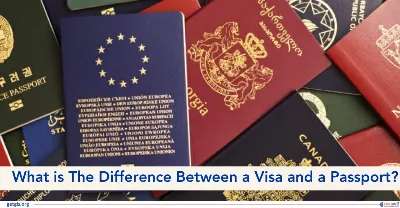Canada PR Requirements 2025‚Äã: Eligibility, Documents, Application Process, & More
Updated On
-
Copy link
-
-
Explore the key Canada PR requirements to ensure a smooth immigration process. From age and language proficiency to work experience and proof of funds, meeting these criteria increases your chances of success.
Limited-time offer : Access a free 10-Day IELTS study plan curated for you

Table of Contents
Dreaming of building a future in Canada? With its high quality of life, diverse job opportunities, and welcoming immigration policies, Canada is a top choice for those seeking permanent residency. But before you start packing your bags, understanding the Canada PR requirements is crucial.
From eligibility criteria to the application process, every step plays a key role in securing your PR status. Missing out on key details can delay your journey. In this blog, we will break down everything you need to know to help you navigate the Canada PR process with confidence.
What is a Canada PR Visa?
TheÃ˝Canada Permanent Resident (PR)Ã˝visa is a coveted immigration status that allows individuals to live, work, and study in Canada on a permanent basis. It offers numerous benefits, including access to healthcare, education, and social security programs. To be eligible for a PR visa, applicants must meet specific Canada PR requirements set by the Canadian government.
There are various pathways to obtain a PR visa, including the Express Entry system, Provincial Nominee Programs, and family sponsorship.
Explore:Ã˝10 Best Canada PR Benefits for Indians in 2025
Who can Apply for Canada PR?
Canada offers multiple pathways for individuals seeking permanent residency, each designed to cater to different backgrounds and qualifications. Here is an overview of applicants who are eligible to apply for Canada PR.
- Skilled Professionals:Ã˝Qualified workers with experience in managerial, professional, or technical roles can apply under programs like the Federal Skilled Worker Program. These professionals help strengthen Canada‚Äôs economy and fill essential labor market gaps.
- Family-Sponsored Applicants:Ã˝Permanent residents or citizens of Canada can sponsor close family members for PR. Eligible relationships include spouses, dependent children, parents, and in some cases, extended family members.
- Entrepreneurs and Investors:Ã˝Business professionals who plan to establish or invest in a Canadian business can apply for PR. Programs like the Start-Up Visa and Provincial Nominee Program (PNP) for entrepreneurs require specific investment and job creation commitments.
- International Graduates from Canadian Institutes:Ã˝International students who have completed studies in Canada may qualify for PR through programs like the Post-Graduation Work Permit (PGWP). Meeting language requirements and gaining work experience in Canada enhances their eligibility.
- PNP Candidates:Ã˝Provinces and territories nominate applicants with skills and work experience that meet regional economic demands. Those selected under the PNP must intend to reside in the nominating province.
- Refugees and Protected Groups: Individuals granted protection in Canada due to risks in their home country, such as prosecution based on religion, race, or political views, can apply for permanent residency under humanitarian programs.
Also Read:Ã˝Canada PR Processing Time From India in 2025
Canada PR Requirements from India
Securing permanent residency in Canada requires fulfilling specific eligibility criteria. These factors determine an applicant’s ability to adapt and contribute to Canadian society. Below are the essential Canada PR requirements.
1. Age Criteria
Applicants must be between 18 and 44 years old to qualify for permanent residency. Those within this age range receive higher points in Canada's immigration system, improving their chances of selection.
2. Language Proficiency
Proving fluency in English or French is a mandatory requirement. Applicants must take an approved test like IELTS, CELPIP, and TEF, and score at least 6 in each section. Strong language skills help candidates integrate smoothly into Canada’s workforce and society.
Quick Read:Ã˝Language Test For Canada PR: List of English to French Exams for Canada Immigration
3. Work Experience
Applicants need a minimum of one year of skilled work experience in the last 10 years. The job must align with the National Occupational Classification (NOC) skill levels 0,1,2, or 3. Relevant work experience enhances eligibility and boosts PR chances.
Check Out:Ã˝Work Experience Certificate: Format, Tips & Samples
4. Financial Stability
Candidates must provide proof of sufficient funds to support themselves and their families. The required amount depends on the number of accompanying family members. Financial stability ensures a smooth transition and settlement in Canada.
5. Visa Application Process
A complete PR application must include all necessary documents to verify eligibility. This includes education credentials, work experience proof, and police clearance certificates. Submitting accurate and complete paperwork helps avoid delays in processing.
6. Medical Examination
Applicants must undergo a medical checkup by an authorized physician. This assessment ensures they do not have any health conditions that could burden Canada’s healthcare system. Positive medical tests for Canada PR are essential for approval.
7. Documents for Family Members
Those applying with dependents must submit additional documents as proof of relationship. Marriage certificates, birth certificates, and other legal papers will be required to confirm family ties.
8. Application and PR Fees
Every applicant must pay a processing fee when submitting their PR application. If approved, an additional Right of Permanent Residence Fee (RPRF) is required. Paying all Canada PR visa fees from India is crucial to complete the PR process successfully.
Documents Required for Canada PR
Submitting the right documents is crucial for a successful Canada PR application. These documents verify your qualifications, background, and financial stability. Below are the documents you need to include in your application.
- Educational Credential Assessment (ECA):Ã˝An Educational Credential Assessment (ECA) for Canada immigration verifies that your foreign education is equivalent to Canadian standards.
- Language Proficiency Test Results:Ã˝Applicants must submit scores from IELTS, CELPIP, or TEF. These tests assess English or French proficiency for PR eligibility.
- Valid Passport:Ã˝A passport with sufficient validity is required throughout the application process. It serves as your primary identification and travel document.
- Police Clearance Certificate:Ã˝This certificate proves that you have no criminal record. It must be obtained from every country where you have lived for six months or more since you turned 18.
- Medical Examination Certificate:Ã˝A health check by an authorized medical professional is mandatory for all applicants. This assessment ensures that candidates meet Canada‚Äôs health standards and pose no health risk.
- Proof of Funds:Ã˝Candidates must provide financial documents to show they can support themselves and their family. The required amount depends on the family size and is essential for settlement in Canada.
Also Read:Ã˝List of Documents Required For Canada PR From India
Points Required for Canada PR
The Canada PR requirements follow a point-based system underÃ˝Express Entry, where candidates are ranked based on their qualifications. Candidates can earn up to 1,200 points across three main categories. Below is a breakdown of how points are allocated.
|
Particulars |
Maximum Points |
Factors |
|
Core Human Capital & Spousal Factors |
500 |
Age (Maximum points 100) Work Experience (maximum points 70) Education (Maximum points 140) Language proficiency (maximum points 150) |
|
Skill Transferability |
100 |
Education & Canadian Work Experience (Max 50 points) Education & Language Proficiency (Max 50 points) Foreign Work Experience & Canadian Work Experience (Max 50 points) Foreign Work Experience & Language Proficiency (Max 50 points) Certificate of Qualification & Language Proficiency (Max 50 points) |
|
Additional Factors |
600 |
Brother or sister in Canada (max 15 points) Post-secondary education (1-2 years) in Canada (max 15 points) Post-secondary education (3 years or longer) in Canada (max 30 points) Arranged employment (NOC 00) (max 200 points) Arranged employment (NOC 0, A, or B) (max 50 points) Provincial Nomination (max 600 points) |
Explore:Ã˝Unlocking Canada PR: Minimum CRS score for Canada PR
Canada PR Process: Step-by-Step Guide
Applying for Canadian permanent residency involves a series of structured steps. Each stage requires careful preparation to ensure a smooth and successful application.
Step 1: Check Your Eligibility
Before starting your PR application, determine if you meet Canada’s immigration criteria. Factors such as age, education, work experience, and language proficiency play a crucial role in eligibility.
Step 2: Take a Language Proficiency Test
Applicants must prove their English or French proficiency through tests like IELTS or TEF. Higher scores improve your CRS ranking, increasing your chances of securing PR.
Step 3: Gather Essential Documents
Collecting key documents in advance helps streamline the application process. These include an ECA for education, police clearance, medical exam results, and proof of work experience.
Step 4: Create an Express Entry Profile
Registering in the Express Entry system is necessary for skilled workers seeking PR. Your profile must accurately reflect your education, experience, and language skills for ranking purposes.
Step 5: Boost Your CRS Score
Improving your CRS score increases your chances of receiving an invitation. You can enhance it by gaining more work experience, improving language scores, or securing a job offer in Canada.
Step 6: Get an Invitation to Apply (ITA)
Applicants with high CRS scores are invited to apply for PR through periodic draws. Receiving an ITA means Canada has recognized you as a strong candidate for permanent residency.
Step 7: Submit Your PR Application
After receiving an ITA, submit a complete PR application with supporting documents. Ensuring accuracy and completeness is vital to avoid delays or rejection.
Step 8: Prepare for Your Move to Canada
Once approved, make the necessary arrangements for your relocation. This includes finalizing travel plans, securing housing, and preparing for life as a permanent resident.
Check Out:Ã˝How to Apply for Canada PR?
Common Pathways for Canada PR
Canada offers multiple immigration pathways for skilled workers, students, entrepreneurs, and families. Here are the most common routes to obtaining permanent residency.
- Express Entry System:Ã˝This is a point-based system for skilled workers applying under the federal programs. It evaluates candidates based on factors like age, education, work experience, and language skills.
- Provincial Nominee Programs (PNPs):Ã˝Under theÃ˝Provincial Nominee Programs (PNPs), each Canadian province selects skilled workers based on local labor market needs. Applicants must commit to living and working in the province that nominates them.
- Family Sponsorship:Ã˝Canadian citizens or permanent residents can sponsor eligible family members. This allows spouses, children, and sometimes parents to gain PR status.
- Study-to-Immigration Pathway:Ã˝International students who graduate from Canadian institutions can apply for PR through various programs. AÃ˝Post Graduation Work Permit (PGWP Canada) for international studentsÃ˝lets them gain essential Canadian work experience, improving their eligibility.
- Start-Up Visa Program:Ã˝Entrepreneurs with innovative business ideas can secure PR through theÃ˝Canada start-up visaÃ˝program. They must get support from a designated Canadian investor or incubator.
- Self-Employed Persons Program:Ã˝Individuals with experience in cultural, artistic, or athletic fields may qualify for PR. They must demonstrate their ability to contribute to Canada‚Äôs economy and society.
Fulfill Canada PR Requirements Effortlessly with ≥…»À√ø»’¥Û»¸
In conclusion, navigating the Canada PR requirements can be a complex and overwhelming process. However, with the expert guidance and support ofÃ˝≥…»À√ø»’¥Û»¸ Immigration Consultants, your path to Canadian PR becomes smoother and more accessible. With our personalized approach, you can confidently embark on your journey toward achieving Canada PR. Book Your Free Consultation to make your Canadian dream a reality.
Useful Links:
Limited-time offer : Access a free 10-Day IELTS study plan curated for you

Frequently Asked Questions
What is the minimum education requirement for Canada PR?
How many years of minimum work experience is required for Canada PR?
What is the minimum IELTS score required for Canada PR?
Why do Canadian authorities require proof of settlement funds?
Is it possible to obtain a Canada PR through sponsorship?





